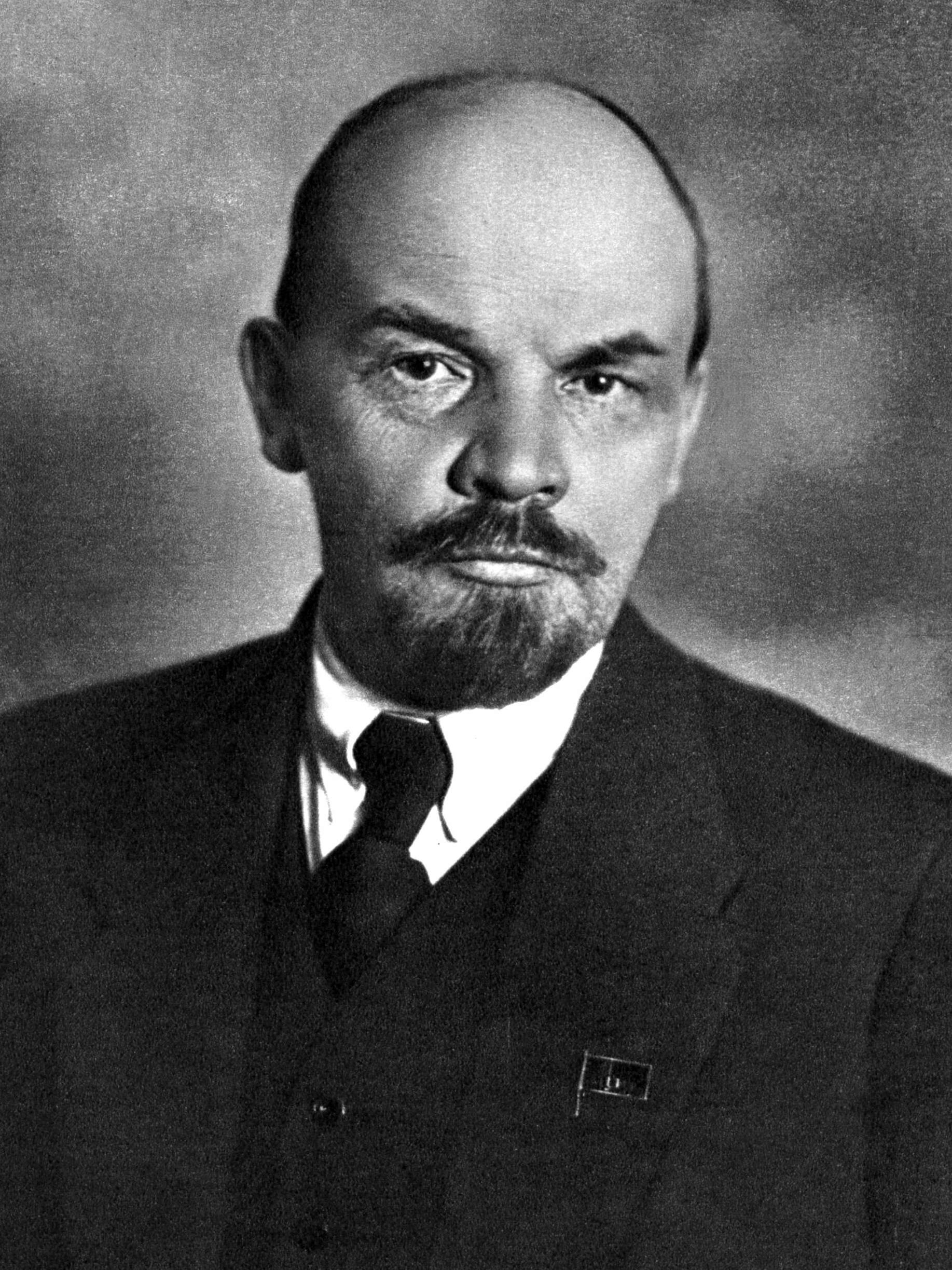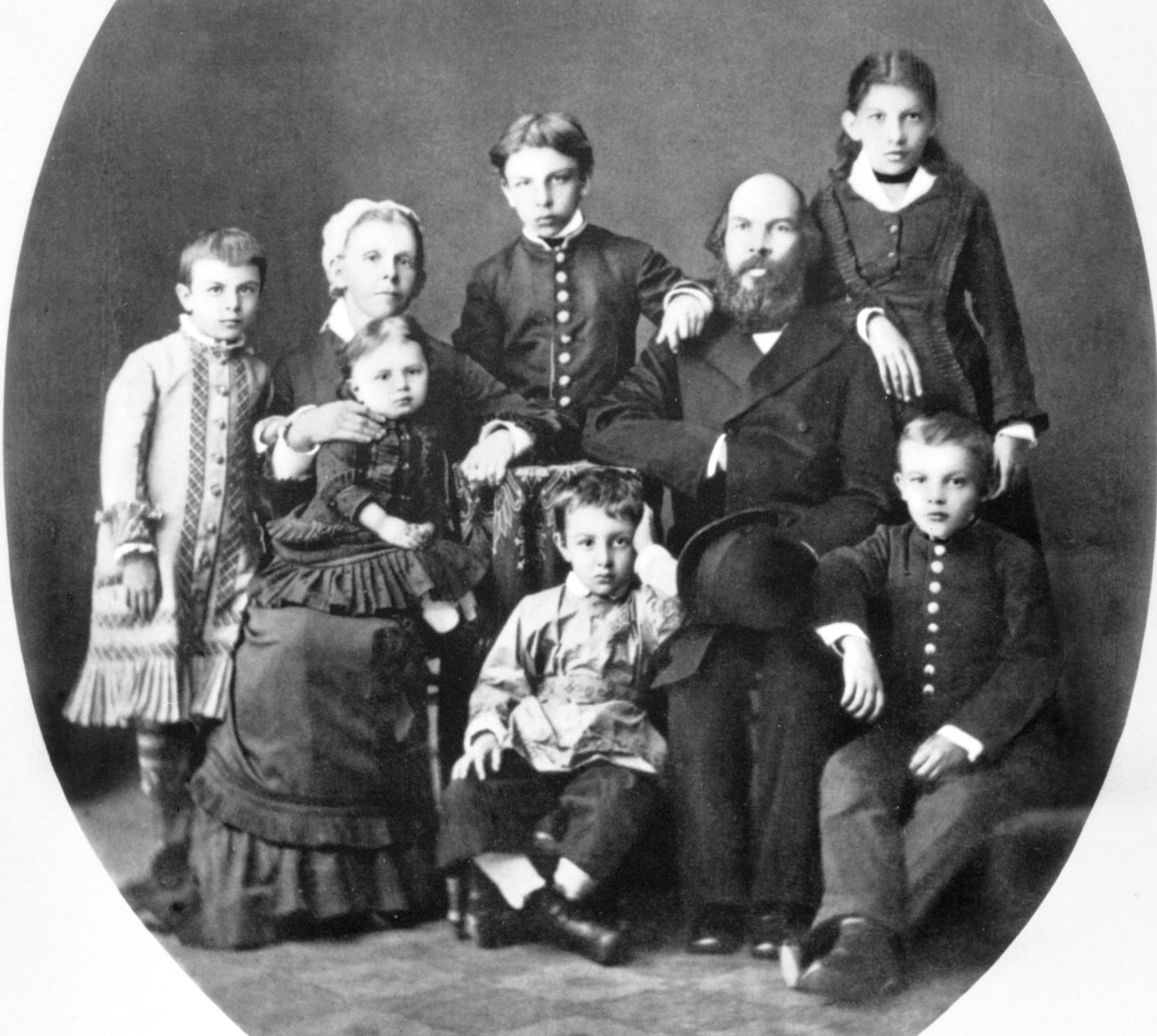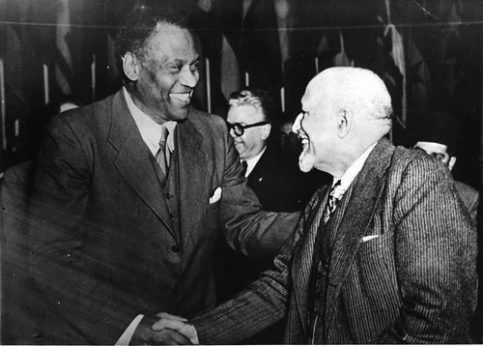Vladimir Lenin: Architect of the Russian Revolution and Bolshevik Leader
 Vladimir Ilyich Ulyanov, better known by his pseudonym Lenin, stands as one of the most influential figures of the 20th century. As the leader of the Bolshevik Party and architect of the Russian Revolution, Lenin played a pivotal role in reshaping the course of world history. His ideas, strategies, and legacy continue to shape political discourse and inspire movements for social change around the globe.
Vladimir Ilyich Ulyanov, better known by his pseudonym Lenin, stands as one of the most influential figures of the 20th century. As the leader of the Bolshevik Party and architect of the Russian Revolution, Lenin played a pivotal role in reshaping the course of world history. His ideas, strategies, and legacy continue to shape political discourse and inspire movements for social change around the globe.
Early Life and Radicalization
Born on April 22, 1870, in Simbirsk, Russia, Lenin was raised in a middle-class family. His upbringing was marked by tragedy, as his father was executed for plotting to assassinate Tsar Alexander III when Lenin was just a teenager. This event deeply impacted Lenin's political consciousness and fueled his desire for revolutionary change.
Lenin's early intellectual development was influenced by the writings of radical thinkers such as Karl Marx and Friedrich Engels. While studying law at Kazan University, he became involved in socialist circles and was drawn to the revolutionary ideas of Marxism. Inspired by the plight of the Russian peasantry and working class, Lenin dedicated himself to the cause of social justice and political revolution.
The Road to Revolution: Bolshevik Leadership Lenin emerged as a prominent figure in the Russian Social Democratic Labor Party (RSDLP), a Marxist organization dedicated to overthrowing the autocratic Tsarist regime and establishing a socialist society. However, the RSDLP was plagued by internal divisions between its moderate Menshevik faction and Lenin's more radical Bolshevik faction.
Lenin emerged as a prominent figure in the Russian Social Democratic Labor Party (RSDLP), a Marxist organization dedicated to overthrowing the autocratic Tsarist regime and establishing a socialist society. However, the RSDLP was plagued by internal divisions between its moderate Menshevik faction and Lenin's more radical Bolshevik faction.
In 1903, at the Second Congress of the RSDLP, the party split into two separate factions, with Lenin leading the Bolsheviks. From that point onward, Lenin pursued a revolutionary strategy centered on the principle of proletarian revolution, advocating for the overthrow of the bourgeois state and the establishment of a dictatorship of the proletariat.
The October Revolution and Bolshevik Consolidation of Power The outbreak of World War I and the subsequent collapse of the Russian monarchy provided fertile ground for revolutionary upheaval. In February 1917, widespread discontent and popular unrest led to the abdication of Tsar Nicholas II and the establishment of a provisional government.
The outbreak of World War I and the subsequent collapse of the Russian monarchy provided fertile ground for revolutionary upheaval. In February 1917, widespread discontent and popular unrest led to the abdication of Tsar Nicholas II and the establishment of a provisional government.
Capitalizing on the revolutionary fervor sweeping through Russia, Lenin returned from exile in Switzerland and spearheaded the Bolsheviks' efforts to seize power. On October 25, 1917 (according to the Julian calendar, which was in use in Russia at the time), the Bolsheviks launched a successful coup d'état, overthrowing the provisional government in what would come to be known as the October Revolution.
Following the revolution, Lenin moved swiftly to consolidate Bolshevik control over the country. The new Soviet government, led by Lenin and the Bolsheviks, embarked on a radical program of social and economic transformation, nationalizing industry, redistributing land to the peasants, and withdrawing Russia from World War I through the Treaty of Brest-Litovsk.
Building Socialism: Lenin's Vision for Soviet Russia Central to Lenin's vision for Soviet Russia was the establishment of a socialist society based on principles of workers' control, economic planning, and social equality. He viewed the Bolshevik seizure of power as the first step towards the construction of a classless society, in which the means of production would be collectively owned and controlled by the working class.
Central to Lenin's vision for Soviet Russia was the establishment of a socialist society based on principles of workers' control, economic planning, and social equality. He viewed the Bolshevik seizure of power as the first step towards the construction of a classless society, in which the means of production would be collectively owned and controlled by the working class.
Lenin's approach to socialist construction was guided by his belief in the necessity of a vanguard party—a disciplined, centralized organization of professional revolutionaries—to lead the working class in the struggle for socialism. He argued for the establishment of a dictatorship of the proletariat, in which the working class would exercise political power to suppress the bourgeoisie and counteract counterrevolutionary forces.
Under Lenin's leadership, the Soviet government implemented a series of sweeping reforms aimed at transforming Russian society. These included the nationalization of industry, the redistribution of land to the peasantry, and the establishment of workers' councils, known as soviets, as the primary organs of political authority.
Challenges and Controversies: The Legacy of Leninism While Lenin's contributions to the Russian Revolution and the establishment of the Soviet state are widely celebrated, his legacy remains the subject of intense debate and controversy. Critics of Leninism point to the authoritarian nature of the Soviet regime, the suppression of political dissent, and the centralization of power in the hands of the Communist Party as evidence of Lenin's authoritarian tendencies.
While Lenin's contributions to the Russian Revolution and the establishment of the Soviet state are widely celebrated, his legacy remains the subject of intense debate and controversy. Critics of Leninism point to the authoritarian nature of the Soviet regime, the suppression of political dissent, and the centralization of power in the hands of the Communist Party as evidence of Lenin's authoritarian tendencies.
Moreover, Lenin's embrace of violence as a means of political struggle, particularly his advocacy for the use of terror and repression against counterrevolutionary forces, has been a source of moral and ethical debate among historians and political theorists.
Despite these criticisms, Lenin's ideas and legacy continue to resonate with socialists, communists, and activists around the world. His critique of capitalism, advocacy for workers' rights, and vision of a socialist future remain relevant in an era marked by growing inequality, economic insecurity, and social injustice.
Lenin's Death and the Legacy of Leninism Tragically, Lenin's leadership was cut short by illness. In 1922, he suffered a series of strokes that left him partially paralyzed and unable to continue his active role in governing the Soviet Union. Lenin passed away on January 21, 1924, at the age of 53. His death marked the end of an era and left a void in the leadership of the Soviet state.
Tragically, Lenin's leadership was cut short by illness. In 1922, he suffered a series of strokes that left him partially paralyzed and unable to continue his active role in governing the Soviet Union. Lenin passed away on January 21, 1924, at the age of 53. His death marked the end of an era and left a void in the leadership of the Soviet state.
In the years following Lenin's death, his legacy became the subject of intense debate and interpretation within the Soviet Union and among Marxist and socialist movements worldwide. The rise of Joseph Stalin, who succeeded Lenin as the leader of the Soviet Union, marked a significant departure from Lenin's vision of socialism.
Stalin's regime implemented policies of rapid industrialization and collectivization, accompanied by widespread repression and purges of perceived political opponents. The cult of personality surrounding Stalin and the consolidation of power in his hands stood in stark contrast to Lenin's emphasis on collective leadership and democratic centralism within the Communist Party.
Despite these deviations, Lenin's ideas and principles continued to exert a profound influence on the course of Soviet history and the trajectory of international communism. The concept of Leninism, as an interpretation and extension of Marxist theory, remained a guiding ideology for socialist movements around the world. The Global Impact of Leninism
The Global Impact of Leninism
Leninism inspired revolutionary movements and liberation struggles across continents, from China and Cuba to Vietnam and beyond. The Bolshevik Revolution served as a catalyst for anti-colonial movements in Asia, Africa, and Latin America, inspiring colonized peoples to seek independence and self-determination.
Moreover, Lenin's emphasis on the role of the vanguard party and the necessity of revolutionary violence as a means of achieving social change influenced leftist movements and guerrilla struggles throughout the 20th century. Marxist-Leninist parties, inspired by the Bolshevik model, emerged as leading forces in countries such as China, Cuba, North Korea, and Vietnam.
While the collapse of the Soviet Union in 1991 marked the end of the era of state socialism and the decline of Leninist orthodoxy as a dominant political ideology, Lenin's ideas continue to resonate with those who seek an alternative to capitalism and imperialism. His critiques of imperialism, his advocacy for workers' rights, and his vision of a socialist future remain relevant in an era marked by global economic inequality, environmental degradation, and social injustice.
The Relevance of Leninism in the 21st Century In recent years, there has been a resurgence of interest in Leninism and Marxist theory, fueled by growing disillusionment with neoliberal capitalism and the failures of liberal democracy to address pressing social and economic issues. The global financial crisis of 2008, the rise of right-wing populism, and the widening gap between the rich and the poor have led many to question the viability of the capitalist system and to seek alternatives.
In recent years, there has been a resurgence of interest in Leninism and Marxist theory, fueled by growing disillusionment with neoliberal capitalism and the failures of liberal democracy to address pressing social and economic issues. The global financial crisis of 2008, the rise of right-wing populism, and the widening gap between the rich and the poor have led many to question the viability of the capitalist system and to seek alternatives.
In this context, Lenin's analysis of imperialism as the highest stage of capitalism, his critique of bourgeois democracy as a façade for capitalist exploitation, and his insistence on the revolutionary potential of the working class have gained renewed relevance. Marxist and socialist movements around the world are reexamining Lenin's ideas and strategies in search of insights and inspiration for confronting the challenges of the 21st century.
Conclusion: Lenin's Enduring Legacy Vladimir Lenin's life and legacy are a testament to the transformative power of revolutionary ideas and the enduring quest for social justice and human liberation. As the architect of the Russian Revolution and the founder of the Soviet state, Lenin left an indelible mark on world history, shaping the course of the 20th century and inspiring generations of revolutionaries, activists, and intellectuals.
Vladimir Lenin's life and legacy are a testament to the transformative power of revolutionary ideas and the enduring quest for social justice and human liberation. As the architect of the Russian Revolution and the founder of the Soviet state, Lenin left an indelible mark on world history, shaping the course of the 20th century and inspiring generations of revolutionaries, activists, and intellectuals.
While Leninism as a political ideology has evolved and adapted to changing circumstances, Lenin's core principles of socialism, internationalism, and proletarian revolution remain a source of inspiration and guidance for those who seek a more just, equitable, and humane world. As we confront the challenges of the 21st century—from economic inequality and environmental degradation to political authoritarianism and social injustice—let us draw inspiration from Lenin's commitment to the cause of human liberation and continue the struggle for a better future for all.








































